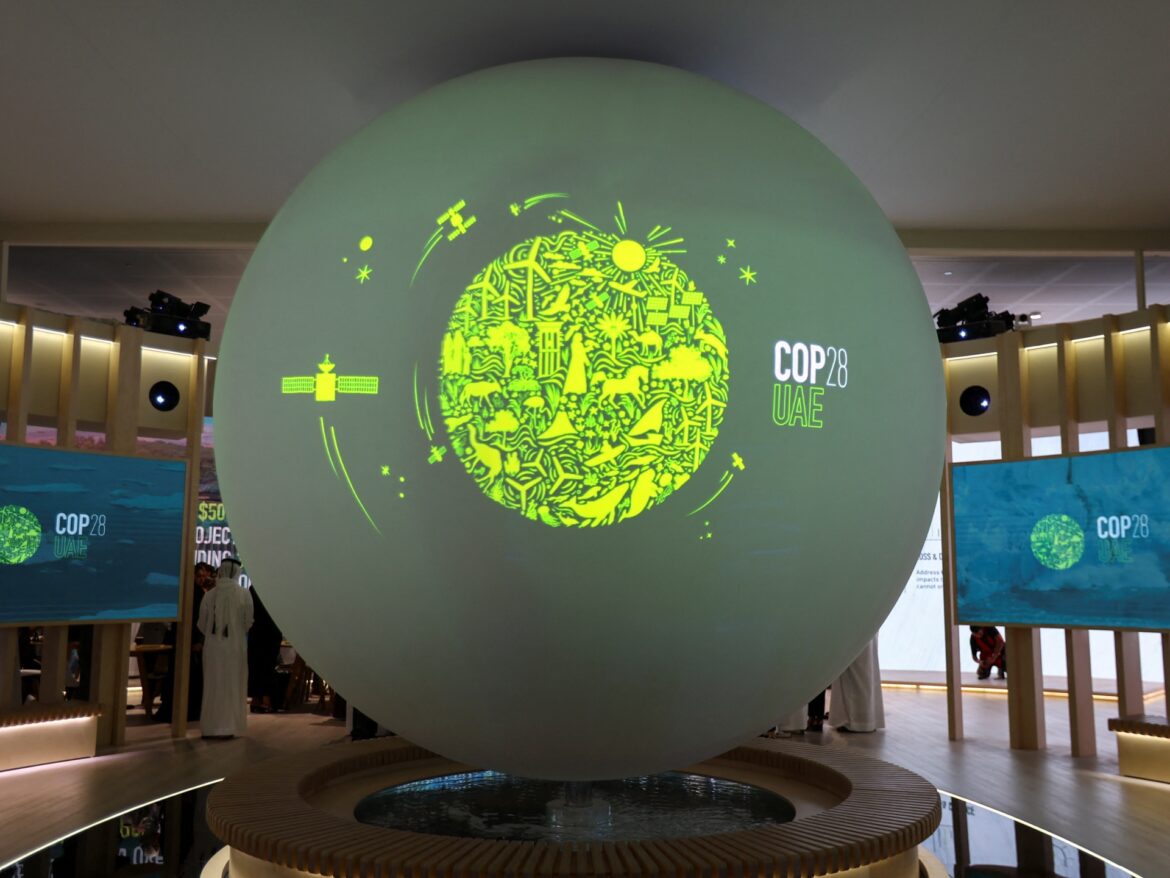A leading energy industry analyst and sustainability expert has mapped out what success will look like for Cop28 in the UAE.
Robin Mills, CEO of Qamar Energy, and author of The Myth of The Oil Crisis, offered his views on the country’s path as it gears up for Cop28, which begins in Dubai at the end of November, and has its own green story to tell.
“Per-capita greenhouse gas emissions and energy use are high. But it was the first country in the Middle East to announce a net-zero carbon target, by 2050. It has reduced emissions since 2017, deploying a combination of nuclear and solar power and removing energy subsidies – quite an achievement for a fast-growing economy and population.
“A national hydrogen strategy and new, more ambitious NDCs were unveiled in early July, with a carbon capture plan to follow, ” says Mills.
With more than 80,000 people expected to attend, this is the Gulf’s first staging of the conference since Doha in 2012.
“It would be an attendance record. Attendees range from politicians and climate negotiators to students and inventors; from businesspeople to journalists and environmental activists,” Mills told AGBI.
There are many issues on the agenda. One is mobilising climate finance – the $100 billion a year promised by wealthier countries for developing nations.
“The sums involved have increased since the pledge was made, but they are still short of the target and have been eroded by inflation.
“Much of the promised money consists of old commitments recycled or is only dubiously of any help to the climate – for instance, a Japanese-backed airport in Egypt with solar panels.”
Another key item on the agenda is the “global stocktake” – a five-yearly assessment of countries’ progress against cutting emissions in line with their nationally determined contributions (NDCs).
These are the plans for cutting emissions and dealing with climate change that each signatory of 2015’s Paris Agreement is meant to submit and update regularly.
“As host and a major oil exporter with plans to grow further, the UAE has a tricky balancing act,” says Mills.
“The president-designate of Cop28, Dr Sultan Al Jaber, is the UAE’s climate envoy.
“He is a respected interlocutor with figures such as the US climate envoy John Kerry and the EU’s climate chief Frans Timmermans, and is the chairman of Masdar, Abu Dhabi’s green energy investor. But he is also the CEO of the Abu Dhabi National Oil Company.”
“There is the kudos of hosting a major global event, which is likely to be well-organised. The presidency cannot determine the result, but it can help to shape the agenda and reach a successful outcome.
“This builds diplomatic bridges with major UAE partners such as China, the EU, US and India, as well as with others with whom there is less regular opportunity for interaction.
“In the run-up to the summit, Al Jaber has stressed the need to involve developing countries. The UAE can also hear the voices of a wide range of civil society and non-governmental organisations, including many that are sceptical of the petroleum industry.”
This is intended to be a “Cop of implementation”, with tangible progress more important than abstract goals.
Article 6 of the Paris Agreement is another important topic. It deals with international co-operation, including carbon markets.
A debate has surfaced over Article 6.4, which covers carbon dioxide removal from the atmosphere by biological or technological means. This is important to fossil fuel producers as it deals with unavoidable emissions, such as those from air travel.
“The initial UN text was grossly biased against removals and Cop28 will have to arrive at a more balanced and pragmatic final version.
“There will no doubt be late nights, tense negotiations and disappointment at the final text – international talks never give everyone what they want and we know we are far short of the changes required.
“But if Cop28 reaches a constructive conclusion, develops low-carbon business links and helps catalyse progress at home, the UAE should be happy.”



